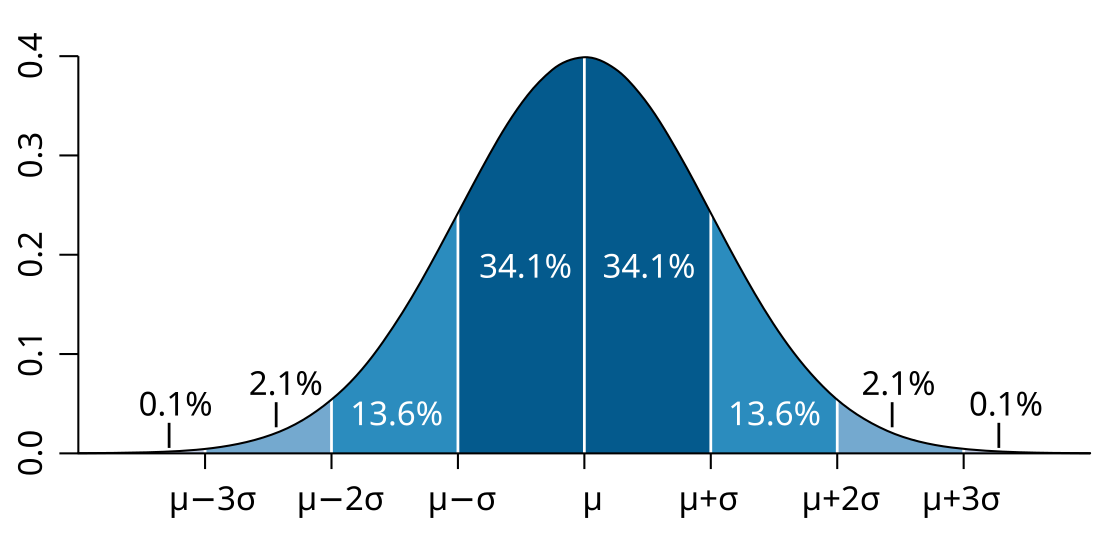Top Qs
Timeline
Chat
Perspective
Law of total probability
Concept in probability theory From Wikipedia, the free encyclopedia
Remove ads
In probability theory, the law (or formula) of total probability is a fundamental rule relating marginal probabilities to conditional probabilities. It expresses the total probability of an outcome which can be realized via several distinct events, hence the name.
Statement
Summarize
Perspective
The law of total probability is[1] a theorem that states, in its discrete case, if is a finite or countably infinite set of mutually exclusive and collectively exhaustive events, then for any event
or, alternatively,[1]
where, for any , if , then these terms are simply omitted from the summation since is finite.
The summation can be interpreted as a weighted average, and consequently the marginal probability, , is sometimes called "average probability";[2] "overall probability" is sometimes used in less formal writings.[3]
The law of total probability can also be stated for conditional probabilities:
Taking the as above, and assuming is an event independent of any of the :
Remove ads
Continuous case
The law of total probability extends to the case of conditioning on events generated by continuous random variables. Let be a probability space. Suppose is a random variable with distribution function , and an event on . Then the law of total probability states
If admits a density function , then the result is
Moreover, for the specific case where , where is a Borel set, then this yields
Remove ads
Example
Summarize
Perspective
Suppose that two factories supply light bulbs to the market. Factory X's bulbs work for over 5000 hours in 99% of cases, whereas factory Y's bulbs work for over 5000 hours in 95% of cases. It is known that factory X supplies 60% of the total bulbs available and Y supplies 40% of the total bulbs available. What is the chance that a purchased bulb will work for longer than 5000 hours?
Applying the law of total probability, we have:
where
- is the probability that the purchased bulb was manufactured by factory X;
- is the probability that the purchased bulb was manufactured by factory Y;
- is the probability that a bulb manufactured by X will work for over 5000 hours;
- is the probability that a bulb manufactured by Y will work for over 5000 hours.
Thus each purchased light bulb has a 97.4% chance to work for more than 5000 hours.
Remove ads
Other names
The term law of total probability is sometimes taken to mean the law of alternatives, which is a special case of the law of total probability applying to discrete random variables.[citation needed] One author uses the terminology of the "Rule of Average Conditional Probabilities",[4] while another refers to it as the "continuous law of alternatives" in the continuous case.[5] This result is given by Grimmett and Welsh[6] as the partition theorem, a name that they also give to the related law of total expectation.
Remove ads
See also
Notes
References
Wikiwand - on
Seamless Wikipedia browsing. On steroids.
Remove ads









![{\displaystyle {\begin{aligned}P({A\mid C})&={\frac {P({A,C})}{P(C)}}={\frac {\sum \limits _{n}{P({A,{B_{n}},C})}}{P(C)}}\\[2ex]&={\frac {\sum \limits _{n}P({A\mid {B_{n}},C})P({{B_{n}}\mid C})P(C)}{P(C)}}\\[2ex]&=\sum \limits _{n}P({A\mid {B_{n}},C})P({{B_{n}}\mid C})\end{aligned}}}](http://wikimedia.org/api/rest_v1/media/math/render/svg/8da9c65ecd52d7b2d8278a2ebd826bad1ba6ad94)












![{\displaystyle {\begin{aligned}P(A)&=P(A\mid B_{X})\cdot P(B_{X})+P(A\mid B_{Y})\cdot P(B_{Y})\\[4pt]&={99 \over 100}\cdot {6 \over 10}+{95 \over 100}\cdot {4 \over 10}={{594+380} \over 1000}={974 \over 1000}\end{aligned}}}](http://wikimedia.org/api/rest_v1/media/math/render/svg/7301abd84ebf00d95e0b2feaba6677644e9cda51)



